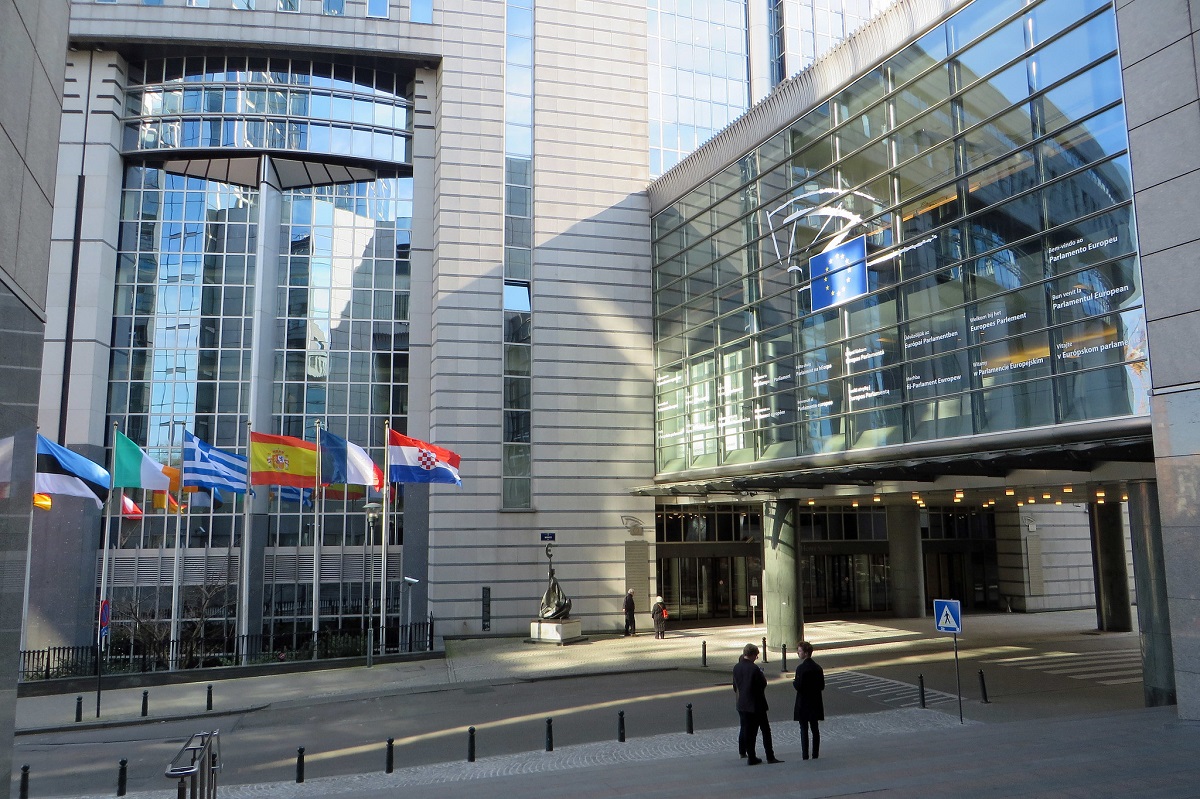Frontex: European Parliament scrutiny group begins inquiry into rights violations allegations
Topic
Country/Region
23 February 2021
A permanent European Parliament scrutiny group began work today to “oversee all aspects of the functioning of Frontex”. Launched on 29 January by MEPs in the European Parliament’s civil liberties committee (LIBE), the group is mandated to spend its first four months investigating the allegations of involvement in fundamental rights violations that have dogged the agency since October 2020.
Support our work: become a Friend of Statewatch from as little as £1/€1 per month.

Two MEPs from each political group in the European Parliament will act as standing members of the working group, which will spend its first four months conducting a fact-finding investigation into all aspects of Frontex’s functioning, before producing recommendations.
In the long term, the group will have a particular focus on compliance with fundamental rights, internal management, procedures for reporting and handling of complaints, transparency and the accountability of Frontex to the European Parliament.
Some MEPs had pushed for a larger, standard inquiry committee to investigate the allegations levelled at the agency over recent months, but this was not possible because of differences of opinion between different parliamentary groups.
Getting off the ground
“For a long time there was a deadlock because of deep resistance against an inquiry committee,” explained Green MEP TIneke Strik, who has been appointed to draft the inquiry report on behalf of the scrutiny group, to Statewatch.
However, one advantage of this scrutiny group is that it avoids the time consuming process of launching an inquiry committee, which would involve ensuring sufficient signatures, the Conference of Presidents taking a decision, and then a plenary vote.
While some groups, such as the centre-right European People’s Party (EPP), were not in favour of an inquiry committee, they were in favour of a permanent Frontex working group. According to Strik, “there we found a beginning of getting a common agreement, because we wanted to have this enquiry, EPP [wanted] a permanent Frontex group, so we started to design how we could do an inquiry inside a permanent scrutiny group.”
A permanent group, a temporary investigation
Though the scrutiny group ispermanent, the first four months of its existence will be dedicated to conducting a fact-finding investigation into the allegations of Frontex’s involvement in or knowledge of fundamental rights violations.
“I think that’s important, not only having exchanges, but really drawing conclusions in the end, and if those conclusions are going to be serious or including recommendations, or conclusions of violations, there will also be a resolution that can be voted for in the Plenary”, explains Strik.
After this time, the task of scrutinising Frontex’s compliance with fundamental rights and transparency obligations will remain part of the group’s mandate.
Broad support: how a less “critical” working group may aid compliance with inquiry
According to the group’s draft mandate, it will gather information by making requests to Frontex for documents and information and inviting stakeholders to meetings, which should be as public as possible. The group’s chair will report to LIBE every four months.
While MEPs cannot oblige Frontex to provide information beyond what is required by the agency’s legislation, Leggeri has previously said that Frontex would be willing to share more if there were a dedicated group of the Parliament: “we will stick him to his promise… it would actually be really bad for their reputation if they did not cooperate. Then we would really have a problem,” said Strik.
A broad support base for the group is therefore important. Members from groups such as the European People’s Party (EPP) are likely to share concerns over transparency and the fulfilment of the Parliament’s mandate, and may also show a less hostile face to Frontex, encouraging cooperation by the agency.
Strik explains:
“I am pretty optimistic that with the small group when we dive into the reports, the documents, interviews with different stakeholders, that a sense of awareness that certain limits have been passed will be shared among the members…. I think that everyone that enters the committee is very much committed, and also [certain groups] also see the importance of a transparent scrutiny of Frontex… It's also about the role of the European Parliament. In the Frontex regulation we have strong role, on paper. But in practice, until now we are pretty much sidelined, and we also face many difficulties in getting access to information that we need to perform our task. And I think all MEPs want to make sure that their mandate is respected.”
A barrage of investigations
Frontex has its own internal management board working group looking into the allegations levelled at the agency last year. Additionally, the European Ombudsman has launched an inquiry, as has the EU’s anti-fraud office, OLAF. The Parliament also has the Schengen Scrutiny Group, a working group of the LIBE Committee focussed on the Schengen Borders Code and which also covers Frontex’s activities.
What the new Scrutiny Group adds to this pool is, its backers hope, transparency. The Schengen Scrutiny Group has held hearings about pushback allegations in Croatia and in Greece, including with the agency’s Fundamental Rights Officer ad-interim, Annegret Koehler. However,confidentiality requirements mean the group has played more of a preparatory role for hearings in the wider LIBE committee.
The four-month investigation into fundamental rights violations will see Frontex staff, member state authorities and experts questioned, as well as other interested parties such as journalists and NGOs, said Strik. There will also be “a monthly meeting in the LIBE Committee in order to make sure we are working as transparently as possible,” explained the Dutch MEP.
the new Scrutiny Group will also be able to invite them to its meetings. While not formally prevented from public communications, Frontex director Fabrice Leggeri is generally the only member of staff who appears publicly.
The standing FRO, Inmaculada Arnáez, was returning to work after a prolonged sickness absence in November 2019 when Leggeri advertised a vacancy for her role, a move described by the European Commission as “plain and simply unlawful… an attempt to discredit or weaken” Arnáez.
Leggeri, who has still not hired the 20 fundamental rights monitors required by Frontex’s 2019 Regulation, has reportedly ignored the FRO’s reports of fundamental rights violations in Hungary and the Aegean Sea.
If you found this article useful, please support our work
Image: diamond geezer, CC BY-NC-ND 2.0
Our work is only possible with your support.
Become a Friend of Statewatch from as little as £1/€1 per month.
Spotted an error? If you've spotted a problem with this page, just click once to let us know.

